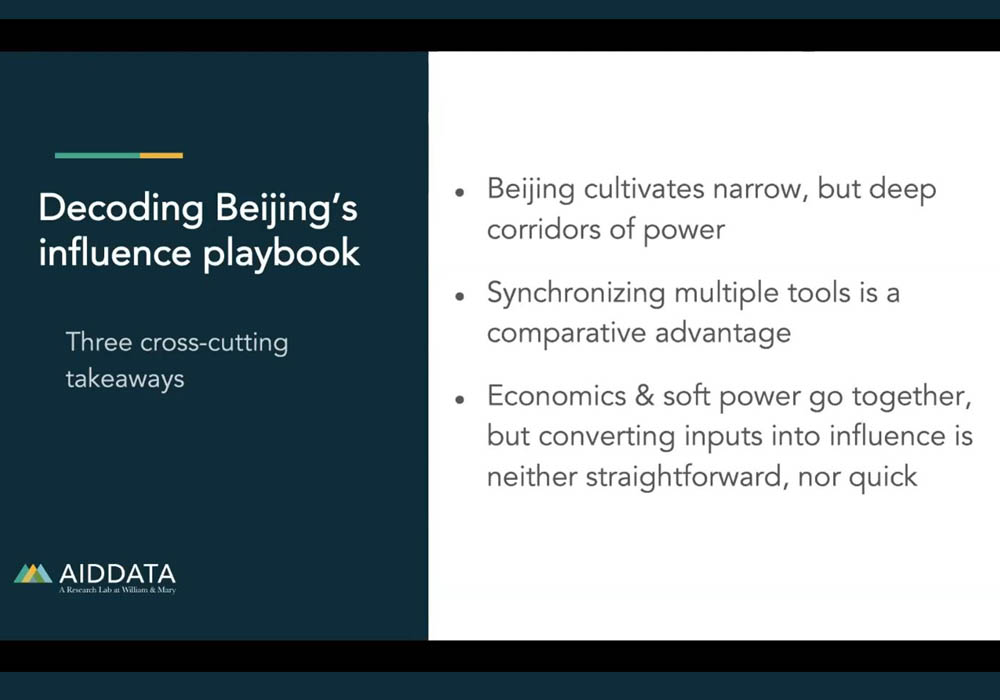On Dec. 14th, 2021, CCASC hosted a joint webinar with AidData Research Labs of the College of William and Mary, launching AidData’s latest report on China’s use of soft power tools in 13 Central and South Asian countries. The 2-hour event began with the presentation of the most important findings from AidData’s “Corridors of Power” report, which was followed by a roundtable and a Q&A session with a panel of experts.

Samantha Custer began her presentation by providing some contextual background on AidData’s work on China’s soft power in Central Asia; “We think about all the discreet examples we see of Beijing’s bid for influence in Central Asia, from Confucius Institute to Public infrastructure projects or a Chinese diplomat using social media to amplify preferred narratives… but despite these visible signs, we have fairly minimal details on the specifics. Which countries and communities receive more of Beijing’s attention and why? How has this evolved over time, and how are communities responding to these overtures from Beijing, and what does that mean for other foreign powers?”.
She then continued by presenting the key findings of the report:
The presentation was followed by a roundtable discussion and a Q&A session on the Belt & Road Initiative, China’s growing presence in Central Asia and Kazakhstan, and its economic and soft power tools with panelists such as Dr. Julie Yu-Wen Chen (University of Helsinki), Dr. Nargis Kassenova (Harvard’ Davis Center), Dr. Gaziza Shakhanova (University of Economics in Prague), Dr. Elizabeth Wishnick (Montclair State University), and Aigerim Toleukhanova (Freelance journalist and researcher). The discussion was moderated by CCASC’s Director Dr. Christopher Primiano, and Dr. Nurseit Niyazbekov from the Department of International Relations at KIMEP University.
AidData’s policy report is now available publicly on the institution’s website. Researchers, journalists and academics studying China and Central Asia are encouraged to make use of these findings that help quantify Beijing’s inputs in its public diplomacy overtures during the past two decades (2000 to 2020) across 13 South and Central Asian countries.

